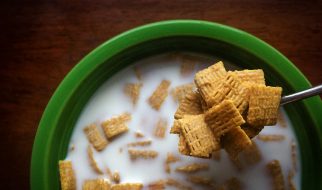You can do it too
 Photo by Yomex Owo on Unsplash
Photo by Yomex Owo on Unsplash
I love food, and I hate being hungry. Not the best qualifications for successful fasting. However, researching the health benefits for my clients related to fasting made me want to try it myself.
My biggest motivation to fast is my desire to get rid of chronic gastritis that had been haunting me since I can remember but has particularly aggravated during the last 12 months.
I already gave up many of my favorite foods, went to a specialist who prescribed me medication that did not do anything for me, and tried to live a less stressful life.
Apart from the fact that all of the above is hard to sustain, it did not help as much as I hoped. But as gastrointestinal conditions run in my family and as chronic gastritis can lead to more severe health issues, I want to get it under control.
During my last painful episode, I try to research potential treatments that can help to improve my condition. The German website www.internisten-im-netz.de suggests to fast for 2?3 days to manage acute episodes.
Dr. Petra Bracht, a German MD specializing in integrative medicine and nutrition and the author of ?Intervallfasten?, also suggests fasting as a way to improve gastrointestinal conditions.
I have tried 16-hour fasting intervals before and always felt better after. However, longer fasts seem to increase the benefits more significantly.
So to get used to extended fasts, I decided to go on a 24 hour fast to start with.
Here is what happened:
- Sunday noon: after finishing lunch (my last meal for the next 24 hours), I set a timer on a fasting app that will count back from 24 hours to 0 seconds. I am a ?fitness nerd,? so tracking things gives me satisfaction and motivates me to fight through this.
- 5 pm: I am a little hungry, but more so I just want to eat. I have ginger tea instead. It?s supposedly good for my stomach.
- 6 pm: I am tempted to snack. But I don?t. It?s not that I am starving; it just feels depressing not to have a nice dinner on a Sunday evening.
- 8 pm: Now I am hungry, and I contemplate to quit the whole experiment. I don?t and watch Game of Thrones reruns to distract myself.
- Monday at 5 am: I am starving (of course I am not, but I am really hungry). I am lightheaded, and my body feels weak. I am a ?breakfast person,? so not eating in the morning is absolute torture for me.
- 6:30 am. I check my fasting timer. I have 5 1/2 more hours without food. I fantasize about a cappuccino. One of the books about intermittent fasting allows coffee with milk during the fasting window. However, I am sure that this does not include a large cappuccino with whole milk, so I don?t give in to my temptation. I brew a stomach friendly black coffee instead. Speaking of my stomach. This morning I was neither in pain nor felt nauseous. On 5 out of 10 mornings, my stomach feels somewhat sick, so I consider this a win.
- 8 am: I don?t feel hungry anymore. However, it would be nice to eat something. I cut up some cucumbers and put them in my water bottle. Now at least I have the feeling I drink ?spa water.?
- 9:52 am: I am getting close. My physical hunger is not too bad, but I crave food. I have to write an article about the IT Band Syndrome and tell myself that I need carbs to fuel my brain. That?s of course BS; I am just trying to find something to procrastinate writing that article.
- 11:51: the Finish line. I can hardly believe that I survived almost a whole day without food. I know many people will smile now because 24 hours might seem like ?nothing,? but for me, it?s a big deal.
- Noon: I am finally allowed to have ?breakfast.? Everything tastes more delicious than usual, and I am very proud that I have made it through the day without cheating.
Key Learning: It?s not so much the physical hunger that makes fasting challenging; it?s the desire to eat. I will definitely try it again to understand if regular 24-hour fasts can improve my health.*
*Fasting is not suited for everybody. If you suffer from a chronic condition, please discuss with your healthcare provider if intermittent or extended fasting could be an option for you.


